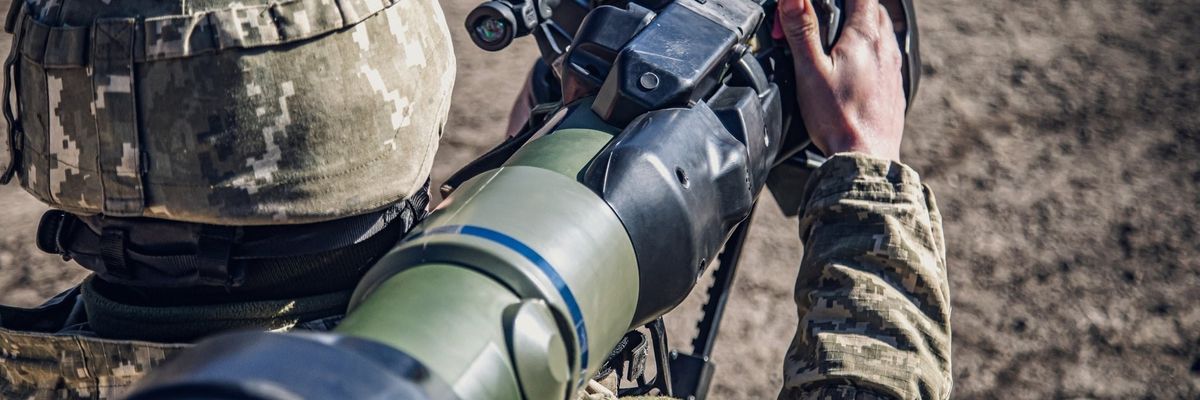Following months of pressure from arms control groups, the State Department released its first detailed plan on how it intends to stop U.S. weapons from being diverted away from their intended use in Ukraine.
The new policy focuses on one major area: stopping the illegal trade of powerful yet portable weapons like Javelin and Stinger missile systems, which could be used by non-state groups to destroy large vehicles or even shoot down commercial planes. The multi-year plan sets out to train Ukrainians on how to keep track of such weapons, bolster border security to stop smuggling, and work with Ukraine’s neighbors on how to identify and stop illicit weapons sales.
Rachel Stohl of the Stimson Center welcomed the policy as a first step, noting that “these are things that should be written into all weapons transfer agreements.” But she lamented that the plan does nothing to address small arms, which can have a major impact in war.
“A small number of small arms and light weapons can cause enormous lethality or deadly consequences but also can change the course of a particular conflict,” Stohl said, noting that guns smuggled out of Ukraine in the 1990s sometimes played a decisive role in civil wars and other conflicts. Washington has sent 10,000 guns or grenade launchers and 64 million rounds of small arms ammunition to Kyiv since February, according to the Pentagon.
The narrow focus on missiles seems to be part of a trend in Washington, where concerns about the proliferation of small arms have fallen on deaf ears in recent years. Notably, that pattern has held under both Democratic and Republican administrations. For example, President Joe Biden has so far kept in place Trump-era measures that make it harder for the public to track where U.S. small arms are being sold despite protests from civil society groups.
When it comes to Ukraine, questions of potential diversion are complex. Since gaining independence from the Soviet Union in 1991, the country has earned a reputation as a major node in the illicit weapons trade. Concerns about diversion have grown in recent years as a low-scale conflict has flooded the country with small, relatively easy to smuggle weapons.
Arms control experts worry about this proliferation within Ukraine, but many note that there have been few verifiable examples of these weapons winding up outside of the country, which they attribute to the fact that many people who acquire weapons would prefer to keep them while the country remains at war. And, despite periodic reports of U.S. weapons ending up on the black market in recent months, there is no evidence of widespread diversion since the Russian invasion in February.
But there’s simply no easy way to keep track of a sudden influx of billions of dollars worth of weapons. As a Pentagon Inspector General report from 2020 notes, monitoring practices suffered when American defense aid to Kyiv went from $30 million in 2013 to $400 million in 2019. With U.S. military aid totaling about $18 billion in just the past eight months (and a brutal war in progress), serious questions remain about how the United States will be able to prevent diversion.
And concerns go beyond fueling the global black market for weapons. As Jordan Cohen of the Cato Institute noted, internal proliferation of small arms could allow a rebel group to emerge if the conflict continues to drag on, especially if Ukrainian President Volodymyr Zelensky loses the support of far-right groups like the Azov Battalion. Such a possibility could extend the war by allowing hard-line groups to play spoiler in future negotiations.
“If he loses control of those groups, then I think you're gonna start seeing those groups kind of creating their own military units, and that's dangerous,” Cohen said.
In the end, only time will tell whether the United States has placed enough protections in place to ensure that its weapons don’t fall into the hands of bad actors. As Stohl argued, the highest risk of diversion will come after the war reaches its conclusion, and Washington needs to be ready when that moment comes.
“I would imagine that we will see significant diversion after the conflict ends,” she said. “But you have to put the structures in place [to fight diversion] now.”
















